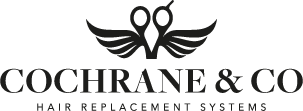Top 5 Hair Growth Vitamins
Like every part of the body, your hair needs the right food to grow and nutritional deficiencies can be a cause of hair loss more often than you might expect. Here's a roundup of the most important vitamins for healthy hair.
Vitamin A
Vitamin A is essential for the production of sebum, the oily substance which moisturises the scalp and coats and protects hair. You'll find vitamin A in animal products including milk, eggs and yogurt, while many vegetables including carrots, spinach and kale are rich sources of beta-carotene, used by the body to manufacture its own vitamin A. While an adequate amount of vitamin A is essential for health, too much can be toxic so if you decide on supplements be sure to read the labels carefully and stay within the recommended dosage guidelines.
Biotin
Biotin is one of the vitamins that make up the B vitamin group and is especially beneficial when hair has been damaged by heat styling or over-exposure to the sun. B vitamins are found in a wide variety of foods so you might expect deficiencies to be rare, but studies have shown that smoking, poor liver function and even pregnancy can lead to biotin deficiency. In these cases, one B vitamin complex tablet a day can be enough to strengthen hair and even reverse hair loss.
Pantothenic acid (Vitamin B5)
Pantothenic acid is required for normal function of the adrenal glands, which promote hair growth. Increasing B5 intake has been shown to thicken individual hair fibres and increase. You'll find pantothenic acid in a range of foods, including sunflower seeds, salmon and avocados, if needed as a supplement it's best absorbed when taken in combination with other B vitamins.
Vitamin C
Vitamin C is a powerful anti-oxidising agent protecting the body from the damage caused by free radicals. As such it's vital for the healthy function of every cell in the body and is also essential for the production of collagen, an important part of hair structure. Fresh fruit, especially citrus fruit and also red peppers, kale and broccoli are all good sources of vitamin C. You need a regular supply of these things as it's broken down in the body quite quickly. If you decide to take this vitamin as a supplement a dose of 500–1,000 milligrams twice a day is the recommended level.
Vitamin D
The exact role of vitamin D in hair growth is unclear but it's known to be one of the important hair growth vitamins. Low levels of vitamin D have been directly linked to hair loss and research suggests that it may have a part to play in the creation of new follicles. You'll find this vitamin in fatty fish and cod liver oil. Vitamin D is produced naturally by the action of sunlight on the skin, so maintaining your intake in the winter months is especially important. Like vitamin A, vitamin D is toxic in excess so read labels on supplements carefully.
The Limitations of Vitamins
People often ask the question 'do hair growth vitamins really work?'. The answer is they certainly can, but only if their deficiency is a cause of the hair loss in the first place. There are several minerals which are also vital for hair growth; zinc, iron and selenium and the most important of these. Genetics, hormone levels, other health problems, stress and age all have a role to play in various types of hair loss. Really it's a case of taking a holistic approach and that always starts with a healthy and varied diet.

